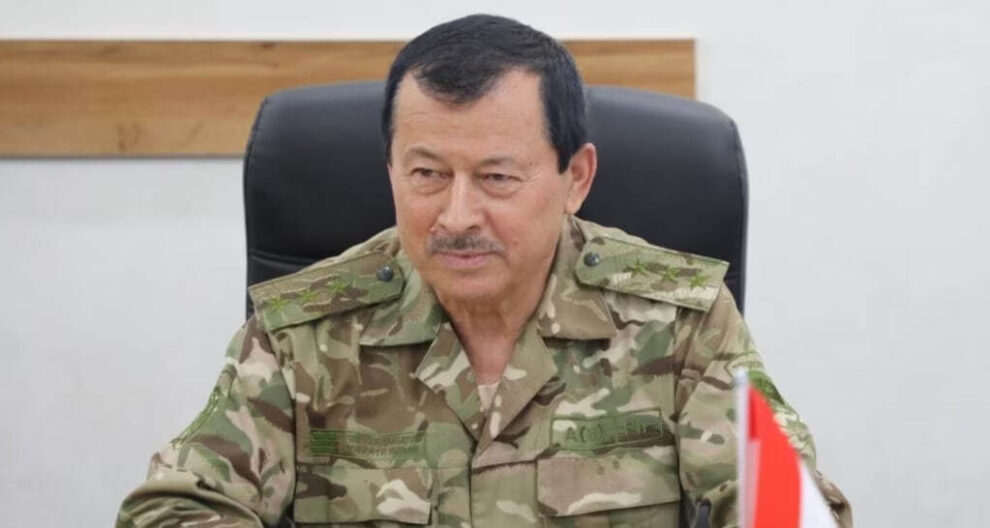The head of the State Committee for National Security of Tajikistan (SCNS), who on December 14 took part in the 19th meeting of the Meeting of the Heads of Security Agencies and Intelligence Services of the CIS Member States, called on his colleagues to move away from ossified approaches in the fight against terrorism.
Saimumin Yatimov told reporters about this in the presence of his colleagues before the start of the meeting: “We must move away from ossified dogmatism, which considers subversion and terrorist activity as something autonomous, a separate phenomenon.”
The Russian state news agency TASS, which summarized Yatimov’s speech with these words, further reports that the head of the Tajik State Committee for National Security explained his point of view to journalists: “The tasks of intelligence and counterintelligence are to find the essence in these phenomena, to identify what is decisive and logical.”
“After all, all these phenomena are necessarily initiated, subsidized, organized, planned and implemented by a specific subject of international relations,” Yatimov noted, “therefore, we must verify the quality and depth of the operational response, develop common steps for the benefit of our states and peoples.”
TASS did not publish any other details and therefore it is unclear for what purpose Yatimov uttered these words. However, in recent years, security agencies have been constantly criticized for their “primacy” in suppressing political rights and freedoms.
Human rights organizations constantly criticize the government of Tajikistan for detaining social and political activists, journalists, and other citizens who criticize the actions of the government, who are then sentenced to long prison terms. Tajik authorities reject this criticism.
At the 19th meeting of the meeting of heads of security agencies and intelligence services of the CIS member states, the head of the State Committee for National Security of Kyrgyzstan, Kamchybek Tashiev, also spoke. According to him, “in a rapidly changing world, in a rapidly changing situation, the heads of special structures must take the same quick response measures to prevent discord between our countries.”
“The CIS countries must act as a single bloc on all issues, especially on security issues,” Tashiev noted.
And all these words are heard in Minsk at a time when, taking into account the issues of the bloody border conflict between Tajikistan and Kyrgyzstan, Russia’s war against Ukraine and the silent protest of most other CIS member states against these hostilities, Russian pressure on migrant workers against the background slogans about friendship and cooperation, Moscow is constantly criticized for promoting its interests at any cost.
CIS – Commonwealth of Independent States – was formed on December 8, 1991 by the leaders of the Republic of Belarus, the Russian Federation and Ukraine. Two weeks later, on December 21, 1991 in Almaty, the heads of eleven sovereign states – former Soviet republics – signed a Protocol to this Agreement in which they emphasized that the Republic of Azerbaijan, the Republic of Armenia, the Republic of Belarus, the Republic of Kazakhstan, the Kyrgyz Republic, the Republic of Moldova, the Russian The Federation, the Republic of Tajikistan, Turkmenistan, the Republic of Uzbekistan and Ukraine form the Commonwealth of Independent States on an equal basis. Currently, the CIS includes Azerbaijan, Armenia, Belarus, Kazakhstan, Kyrgyzstan, Russia, Tajikistan and Uzbekistan. Moldova, which has not ratified the CIS Charter since the Russian invasion of Ukraine, refuses to participate in meetings of the Moscow-controlled organization.
Most CIS member states are governed by autocratic leaders who have been criticized by the international community for dictatorship and even attempts at totalitarianism.
Source: Ozodi









